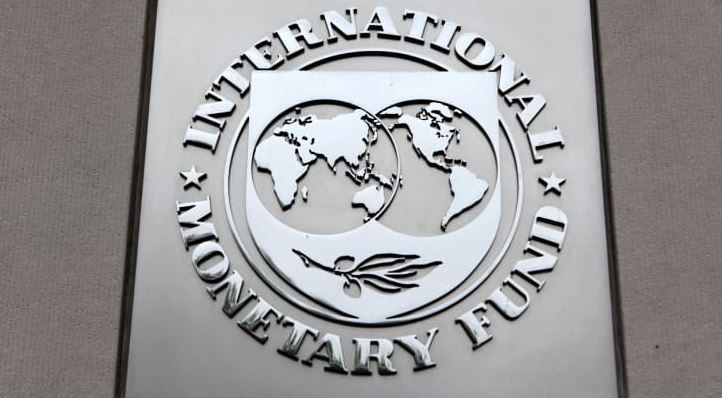There is growing pressure on the International Monetary Fund (IMF) to reconsider the manner in which it charges interest and other fees on the loans that it grants to underdeveloped nations in need of assistance, such as the war-torn Ukraine, which is one of the fund’s largest borrowers.
The decision comes as a result of an increase in the number of nations that will need to seek assistance from the IMF due to the ongoing rise in food prices and inflation worldwide.
Surcharges are additional costs that are put on to loans and are levied on countries who are deeply indebted to the International Monetary Fund (IMF).
Wally Adeyemo, the Deputy Secretary of the Treasury, said at an event in Aspen a month ago that the finance ministers of a number of nations have come to the realisation that they must pay a price for Russia’s conflict in Ukraine, particularly in light of the rise in the cost of food.
Surcharges imposed by the International Monetary Fund (IMF) would be put on hold pending further investigation into both their efficacy and the burden they place on countries that are already deeply in debt, as stipulated by an amendment to the National Defense Authorization Act, also known as the defence spending bill.
A member of the Senate Armed Services Committee has indicated that an amendment might be proposed within the next few weeks or perhaps on the floor of the Senate itself.
The United States, which is the biggest shareholder in the International Monetary Fund and a member of the Fund’s executive board, has the ability to exert pressure on policy choices and to unilaterally reject specific board decisions.
Some people accuse China of engaging in debt trap diplomacy, which refers to the practise of having nations fall so deeply in debt to Beijing that they are indebted to it on international problems. As instances, they point to the deepening financial difficulties in Sri Lanka and Pakistan.
Advocates and human rights organisations have the same criticism levelled against the Fund. They say that the Fund undermines its primary lender-of-last-resort function with nations who are in precarious circumstances to pay back their debt.
According to Maurice Obstfeld, a professor of economics at Berkeley and a former head of the research department of the IMF, the capacity of the Fund to lend money as a lender of last resort is vital since low and medium income nations are seeing increasing interest rates.
In the face of heavy constraints on borrowing nations, surcharges may be temporarily lifted, but this would come at the price of the Fund’s capacity to serve its membership over the longer term.
Jess Chuy Garca, a representative from Illinois and the person who proposed the amendment to increase spending on military, told the Associated Press that it is unjust for the IMF to demand nations like Ukraine, who are already in a significant amount of debt, to pay surcharge fees.
According to the central bankers of Ukraine, the nation is now involved in a conflict that is not expected to finish anytime soon and has an outstanding balance of 7.5 billion SDRs, which is a unit of accounting used by the IMF and is worth around $9.8 billion.
According to the most recent estimates, Ukraine will owe the IMF a total of 360 million dollars in surcharges between the years 2021 and 2023.
Joseph Stiglitz, an economist at Columbia University, and Kevin P. Gallagher, an economist at Boston University, wrote earlier this year that forcing excessive repayments lowers the productive potential of the borrowing country.
Despite Russia’s full-scale assault on Ukraine, Ukraine is continuing to pay its bills, according to Serhiy Nikolaychuk, Deputy Chairman of the National Bank of Ukraine.
The International Monetary Fund (IMF) has been lending billions of dollars to low-income nations for decades. For years, parliamentarians, academics, and human rights groups have been calling on the IMF to halt its surcharge policy.
The levies, according to a spokeswoman for the fund, are intended to deter users from making extensive and protracted use of IMF resources.
In a message that was sent out through email, Mayada Ghazala said that the levies do not apply to the world’s most impoverished nations since they are the only ones that have exceptionally huge amounts of outstanding debt.
During their meeting in December 2021, the executive board of the fund examined the function of surcharges. Although they finally opted against making any adjustments to the fees, they said that they will consider them again in the future.
According to Andrs Arauz, a senior research fellow at the liberal Centre for Economic and Policy Research, the financial status of the IMF demonstrates that the fees are not essential for maintaining solid finances.
Garcia said that he is pleased that the House voted in favour of his amendment to support a halt and review of surcharges at the IMF and that he would continue to push for the amendment until it is signed into law by the President.
Separately, the United States has provided over $7.3 billion in assistance to Ukraine since the conflict started in late February. This includes a brand new military aid package for $775 million that was unveiled on Friday.

